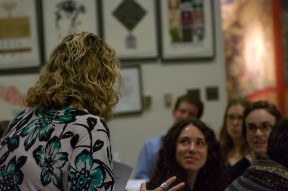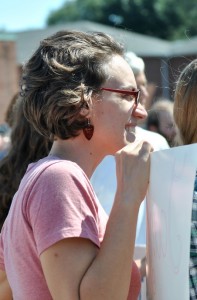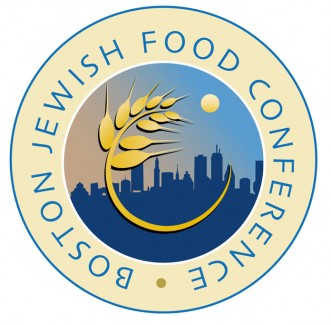
Presenter Marjorie Fine, Director of the Linchpin Campaign at the National Summit
Originally posted in Global Voices.
What exactly is “organizing”? It’s a term people are using a lot more these days. From Wall Street to Tahrir Square, people are organizing for different kinds of change. But the idea of organizing from the ground up toward a common goal often makes people uncomfortable. Why is that?
As a fundraiser at AJWS, I can relate to this discomfort. Asking someone to make a financial gift is often met with apprehension, similar to the kind of apprehension someone feels when asked to sign a petition, call their member of Congress, or participate in a protest. It’s the “ask” that often puts people in a place where they are forced to think about how they tackle issues of injustice and whether they are willing to step up and take action. To get people to say “yes,” you need to build a relationship—which is really what organizing is all about.
Last week, I attended the Jewish Organizing Institute and Network (JOIN for Justice) National Summit at Hebrew Union College-Jewish Institute of Religion, along with a number of my AJWS colleagues and a group of incredible AJWS volunteers. Together, we learned more about organizing, what makes it Jewish, and how we are collectively harnessing our power to change the world on issues ranging from local labor unions to the U.S. Farm Bill. We were joined by some of the most influential leaders in organizing, including Heather Booth of the Midwest Academy and Ai-jen Poo, Director of the National Domestic Workers Alliance, as well as representatives from more than 20 organizations from across the country.
As a fundraiser, I was instantly drawn to the organizing models we discussed at the summit based on the premise of building relationships. This makes so much sense. Whether you are supporting a cause by donating money or by donating your time and skills through activism, you are becoming part of a larger movement. My views on philanthropy mirror my views on organizing. If you know there is a problem, you must work to fix it in whatever way you can.
The JOIN for Justice Summit was unique because it brought together people who are working on a wide range of issues. Facing so many problems head on can be overwhelming, but it is important to figure out what you are passionate about and support it in whichever way you can.
For 27 years, AJWS has been bringing people together to mobilize around issues of injustice affecting the world’s most marginalized populations. AJWS’s Reverse Hunger campaign is pushing Congress to uphold recent changes to the Farm Bill and its international food aid policies. The existing policies will provide more funding for local and regional procurement of food and will prevent the U.S. government from undermining local economies when we ship food aid overseas.
After many one-to-one relational meetings and petition signatures, a powerful coalition created the Jewish Platform for a Just Farm Bill. AJWS’s community leaders also began having meetings with members of Congress across the country (led by the same incredible volunteers who were at the JOIN Summit), to tell Congress that this change is crucial to the lives of millions of people in the developing world.
Bottom line: organizing really works! And it’s a tool that is becoming more and more useful for AJWS’s work in the developing world and in the U.S.
Interested in organizing your community around food justice? Learn more about the Reverse Hunger campaign to take action through a variety of organizing efforts.
Organizing can feel overwhelming, but I often remind myself of what Ruth Messinger reminds synagogue congregations: “It is not incumbent upon you to finish the task, but you are not free to desist from it.” (Mishna, Pirkei Avot 2:16)
Leah Kagan is a development officer at American Jewish World Service.



 5) How to “raise money with chutzpah”
5) How to “raise money with chutzpah”  Join the Greater Boston Jewish community for an in-depth exploration of cuisine, agriculture, labor, business, health, access, history, and spirituality. Participate in a range of hands-on activities, Jewish textual reflections, and contemporary food justice sessions.
Join the Greater Boston Jewish community for an in-depth exploration of cuisine, agriculture, labor, business, health, access, history, and spirituality. Participate in a range of hands-on activities, Jewish textual reflections, and contemporary food justice sessions.


